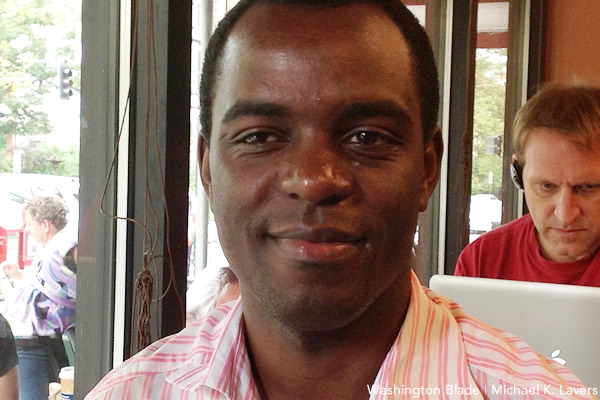Arts & Entertainment
Netflix revisits ‘The Trials of Gabriel Fernandez’ in harrowing but essential docuseries
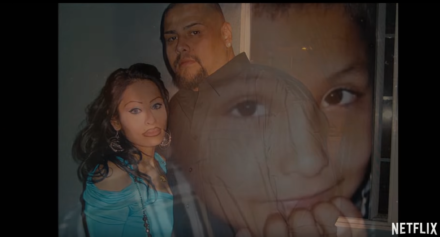
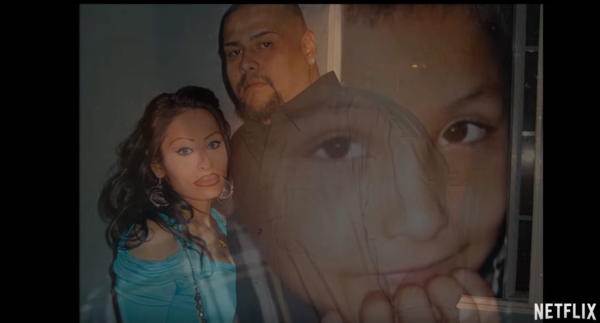
The name of Gabriel Fernandez still hangs heavy over the City of Los Angeles.
From the day the 8-year-old was found by Fire Department personnel on the floor of his Palmdale home after they responded to a 911 call from his mother, his story loomed large in the daily news. The paramedics had found Gabriel badly bruised and unresponsive, with profound injuries – broken ribs, a cracked skull, missing teeth, burnt skin, and BB bullets imbedded in his lungs and groin – that didn’t fit with the explanation they had been given for his condition. His mother, Pearl Sinthia Fernandez, and her boyfriend, Isauro Aguirre, claimed the boy had been injured by falling over a dresser and hitting his head. Gabriel was pronounced brain dead at the hospital on that same day, May 22, 2013; he was taken off life support and passed away two days later.
That tragic incident was the beginning of a seven-year ordeal for Gabriel’s family, his community, and the city itself. The child had been the victim of horrific and systematic abuse, perpetrated by his mother and Aguirre and allegedly motivated at least partly by Aguirre’s belief that the boy was gay; worse yet, other family members, as well as Gabriel’s teacher, had notified Children and Family Services multiple times over concerns that he was being mistreated, yet social workers had found, in every case but one, that their reports were unfounded – despite what seemed in retrospect to be clear indications to the contrary.
Fernandez and Aguirre were charged with first-degree murder in the death of Gabriel, with a special circumstance for torture, and in an unprecedented move, county prosecutors also charged four county social workers with one felony count each of child abuse and falsifying records.
The case dominated headlines as the ensuing investigation and court proceedings revealed ever more disturbing details about Gabriel’s short life and cruel death. The prosecution sought the death penalty for both of the perpetrators, who admitted to killing the child but claimed it had not been a pre-meditated act. Finally, in 2018, Aguirre was found guilty of the first degree changes and sentenced to death; Fernandez avoided the death penalty by agreeing to plead guilty.
In January of 2020, the charges against the four social workers were thrown out by a three-justice panel of the 2nd District Court of Appeal.
Now, Netflix is set to unveil “The Trials of Gabriel Fernandez,” a six-part docuseries which examines the case as it was laid out by LA County prosecutors, as well as chronicling journalistic efforts to track the weaknesses within the government agencies devoted to children’s welfare that permitted such a heartbreaking act to take place. Directed by documentarian Brian Knappenberger (“Nobody Speak: Trials of the Free Press”), it’s a gripping (and grim) deep dive into the case that may well be the most intense and upsetting true crime series the streaming network has produced so far.
Casting lead prosecutor Jon Hatami in the role of avenging hero, Knappenberger’s chronicle of the court case carefully avoids straying into sensationalism without shying away from the gruesome facts of Gabriel’s life. Through trial footage, interviews, and footage shot specifically for the show, we are given as comprehensive a look at the story as is possible in six hours of television, with the benefit and clarity of hindsight to assist in offering an overarching view of not only what happened, but of the systemic problems that led to a failure by those charged with protecting at-risk children to prevent the worst from happening to Gabriel. Perhaps most effectively, it repeatedly reminds us, through photos, footage, and the words of those who knew him, that Gabriel was a kind, loving, and gentle child who deserved much better treatment at the hands of those who should have been his caretakers.
As for the assertion that homophobia was a factor in Aguirre’s brutal beating and killing of his de-facto stepson, it doesn’t offer a lot of detail – prosecutors chose not to pursue a hate crime charge for strategic reasons, so that angle was only supplemental in proving a case for pre-meditation based solely on factual evidence – but it makes sure we hear about it in both through Hatami’s court statements and from the mouths of family members, who assert that Gabriel had been taken by the couple from his uncle and same-sex partner (previously given custody when his mother “didn’t want him” at birth) because they didn’t approve of a child being raised by gay parents. By all reports, Gabriel experienced the happiest and most supportive environment of his short life when he lived with them.
The Netflix series spends considerable time hammering home the shocking reality of the violence suffered by little Gabriel (described by Los Angeles Judge George G. Lomeli at Aguirre’s sentencing as “horrendous, inhumane and nothing short of evil”), and rightly so; to do anything less would be a disservice to his memory. Once it has done that, however, it sets its sights on the deeply shrouded county bureaucracy of Child and Family Services, the uniquely autonomous and powerful agency that oversees child welfare, and paints perhaps an even more disturbing picture of an organization overworked, understaffed, hamstrung by the financial priorities of privatization, and cloistered in a stubborn veil of secrecy that resisted not just inquiries from the press but from prosecutors as well. It also makes clear that law enforcement officials were well aware of the prior history of reported abuse in the Fernandez home before that fateful day when Gabriel’s life came to an end.
At the same time, Knappenberger takes care to offer a balanced view of the more complex ethical issues at the core of the case. His coverage of the four accused social workers, singled out in the minds of many as scapegoats by county officials looking for a means of damage control, is fair and compassionate, offering a glimpse at the daunting pressure and moral quandaries that face such civil servants; that it never quite lets them off the hook for the choices they made in handling Gabriel’s situation before it was too late is more testament to the journalistic integrity to which the series aspires.
Though the case of Gabriel Fernandez made the news nationwide, many outside of Los Angeles itself will likely only have passing familiarity with what happened. With “The Trials of Gabriel Fernandez,” Netflix is ensuring that Gabriel’s heartbreaking story will be known by millions – and while some may be hesitant to watch due to the disturbing nature of its conflict, it’s a show that demands to be seen. It reminds us, in no uncertain terms, that there are monsters in the world; but it also reminds us that for every Isauro Aguirre or Pearl Fernandez, there is also a Jon Hatami – someone who will stand up to fight for justice in the name of those who have suffered at their hands. Perhaps most important, it reminds us there is still much work to be done in perfecting the systems we have in place to serve our children – and that unrelenting, powerful journalism is still the best tool we have for holding those systems accountable.
“The Trials of Gabriel Fernandez” premieres on Wednesday, February 26, on Netflix. You can watch the trailer below.
Photos
PHOTOS: Taste of Point
Annual fundraiser held for LGBTQ youth scholarship, mentorship organization

The Point Foundation held its annual Taste of Point fundraiser at Room & Board on May 2.
(Washington Blade photos by Michael Key)
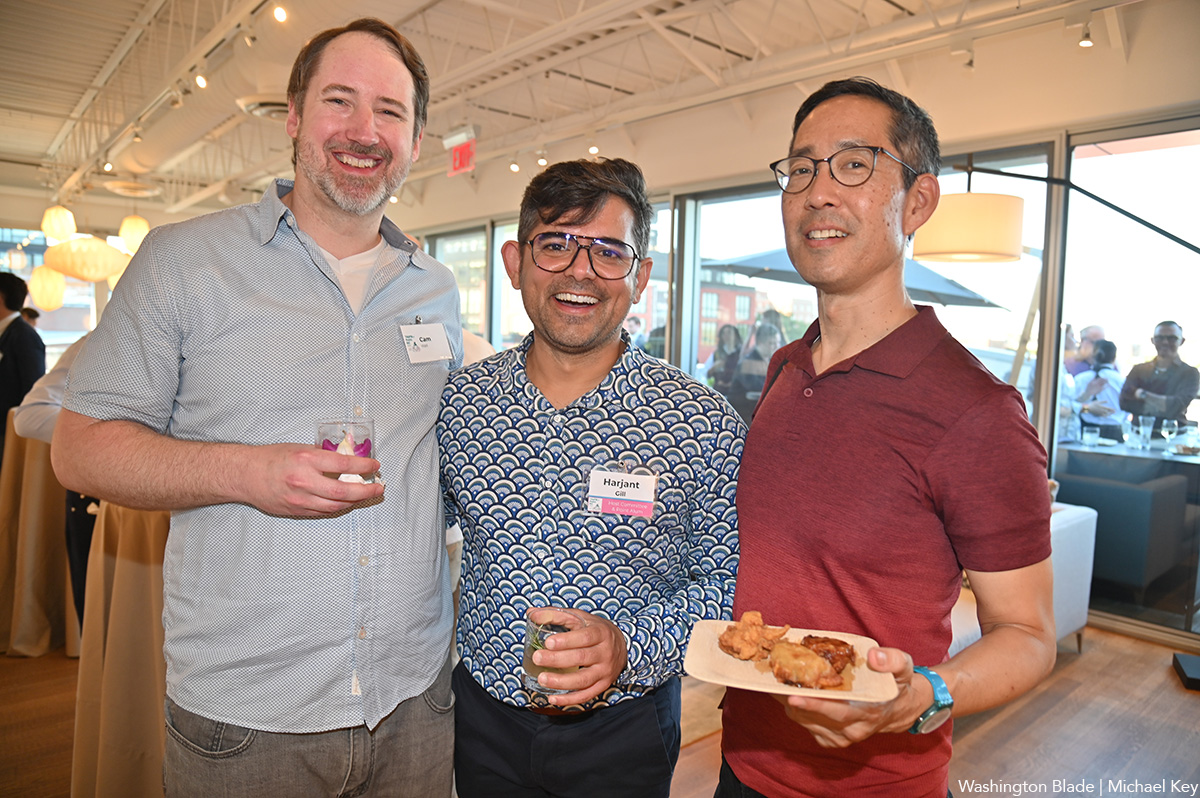

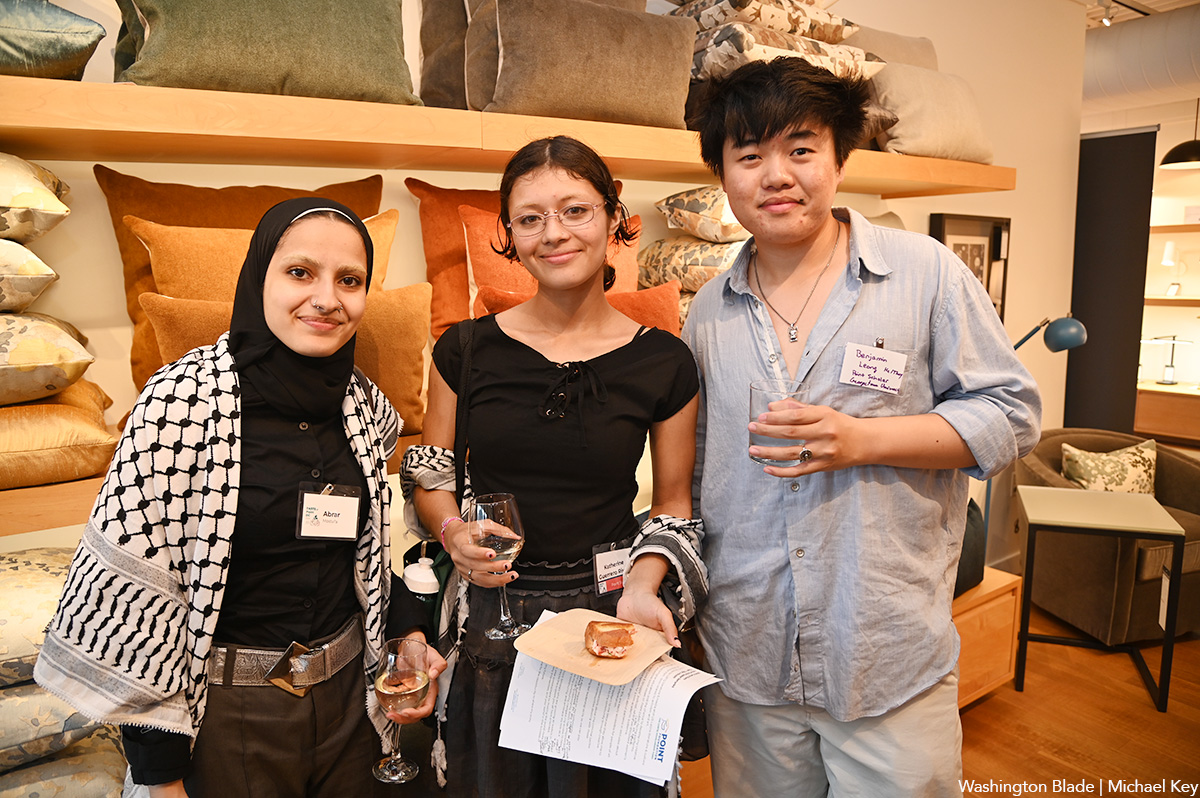

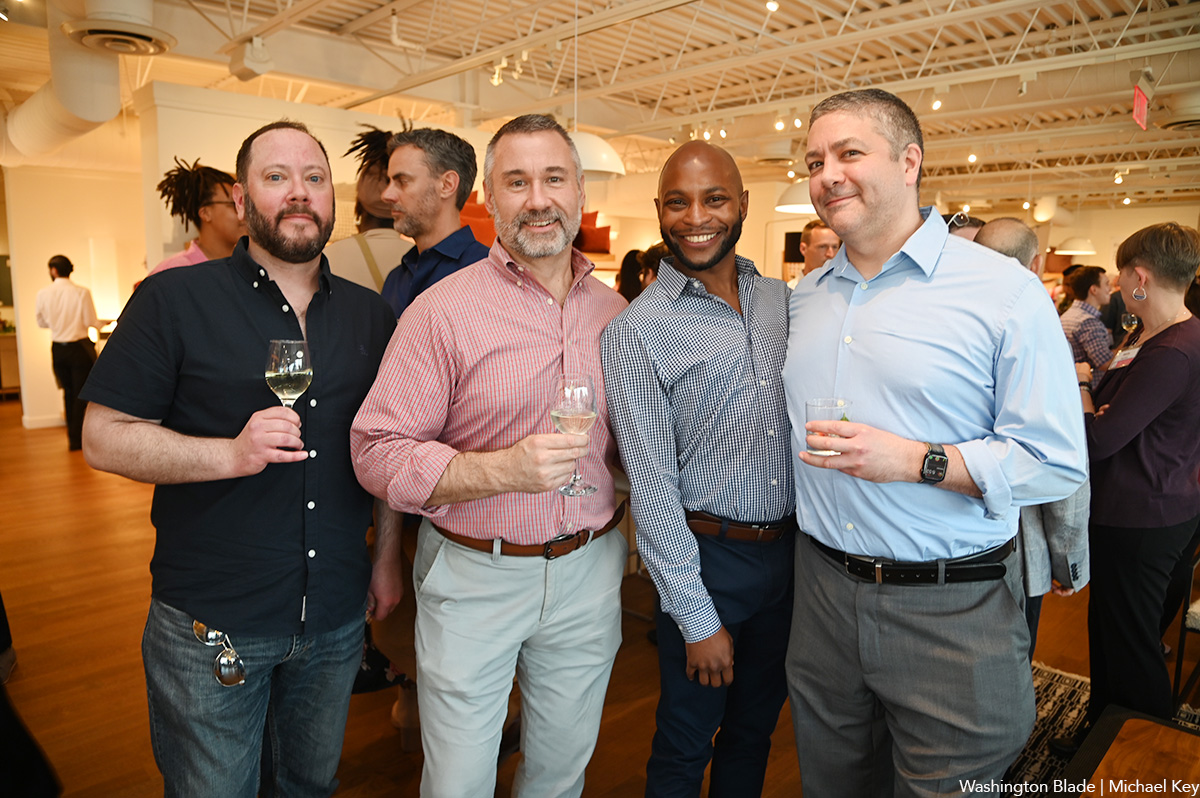

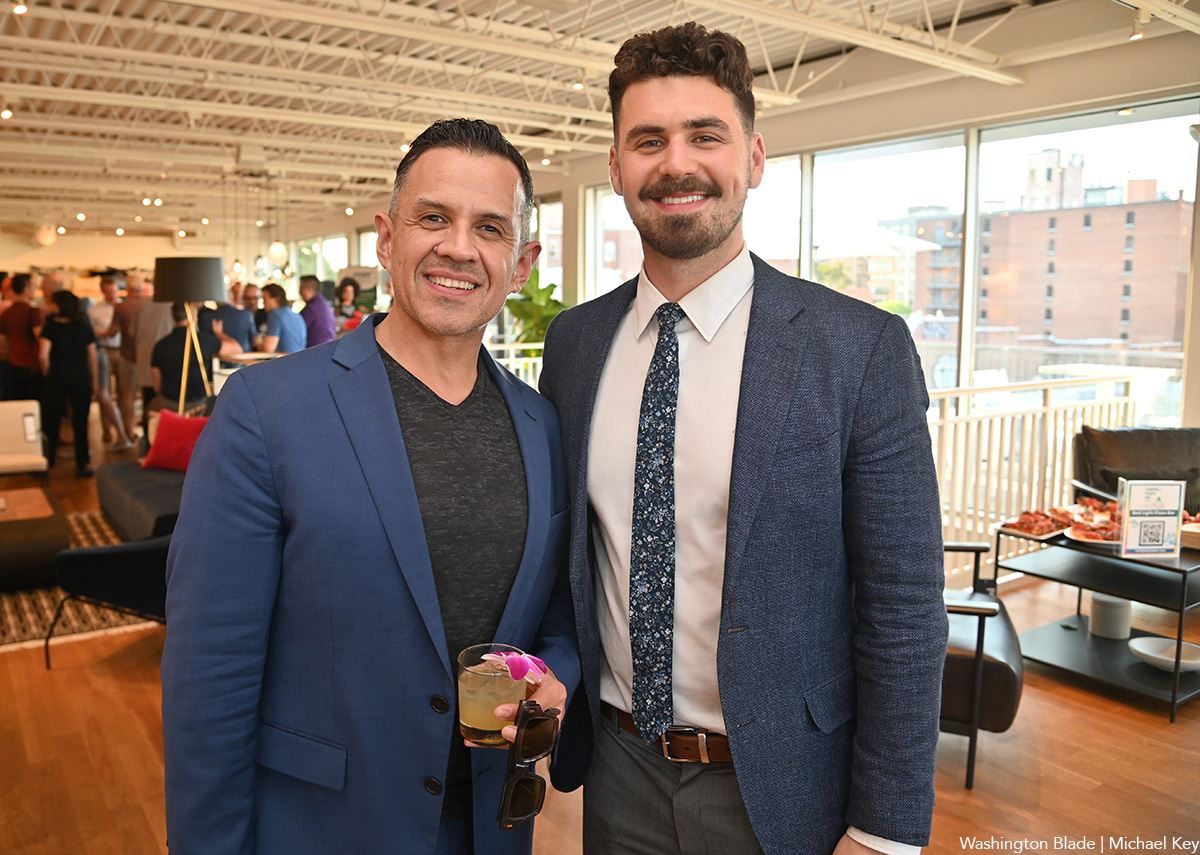
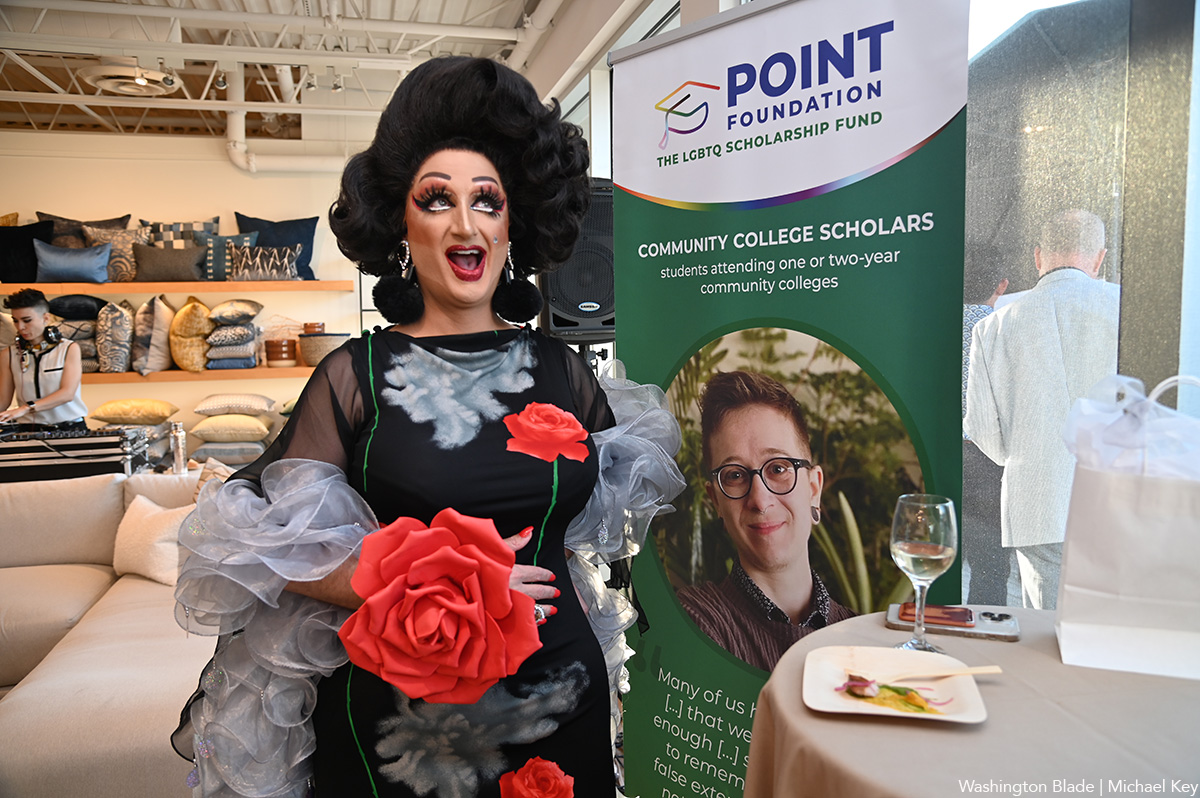
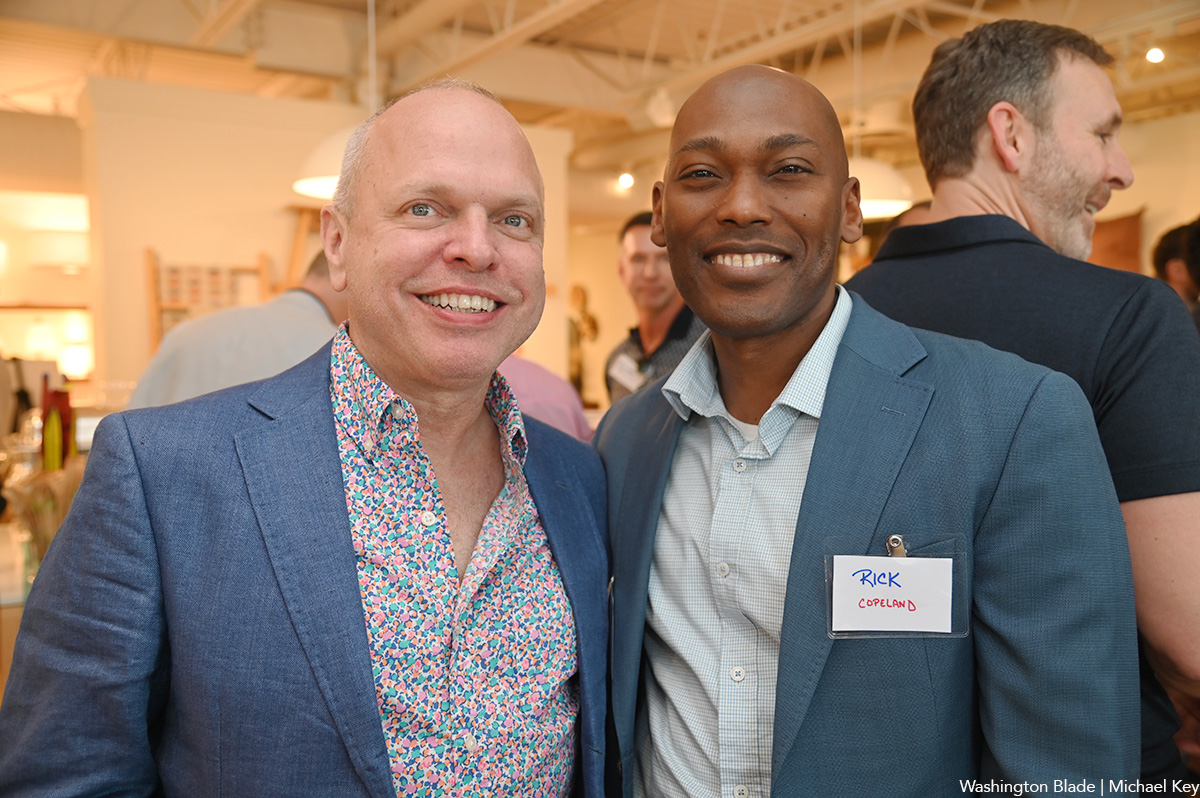

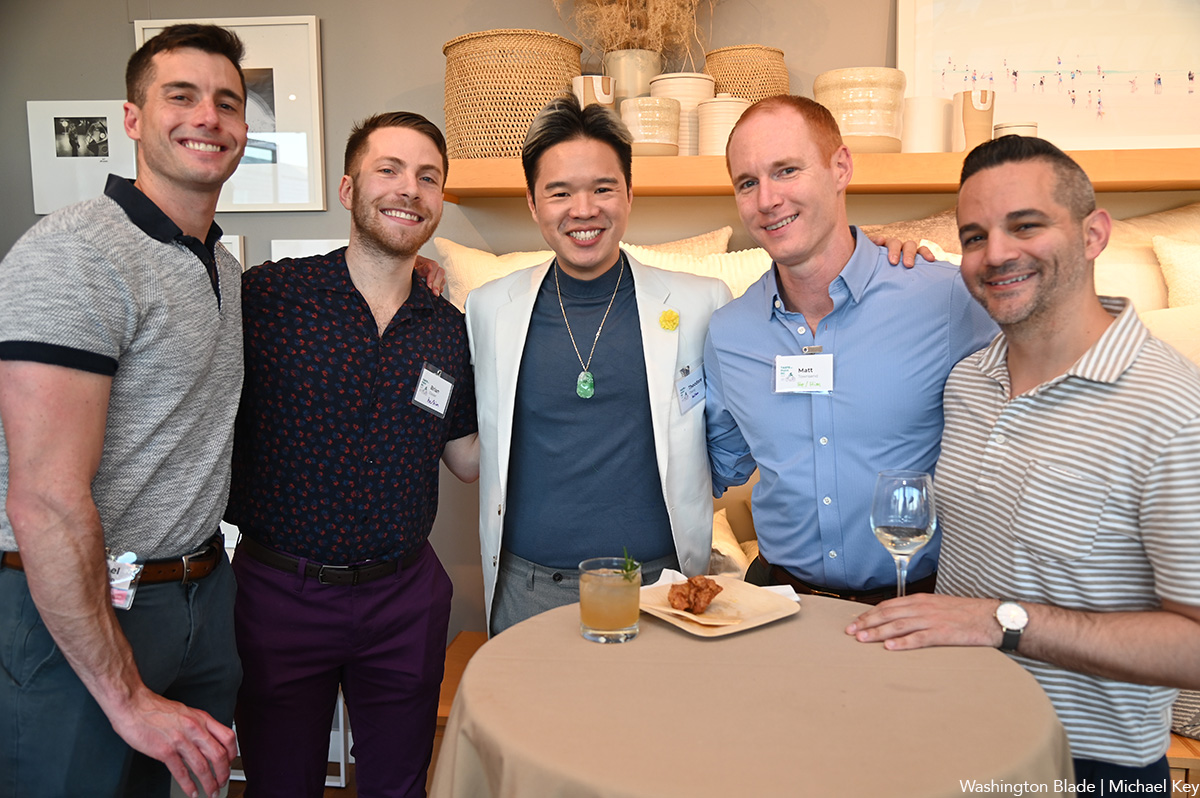

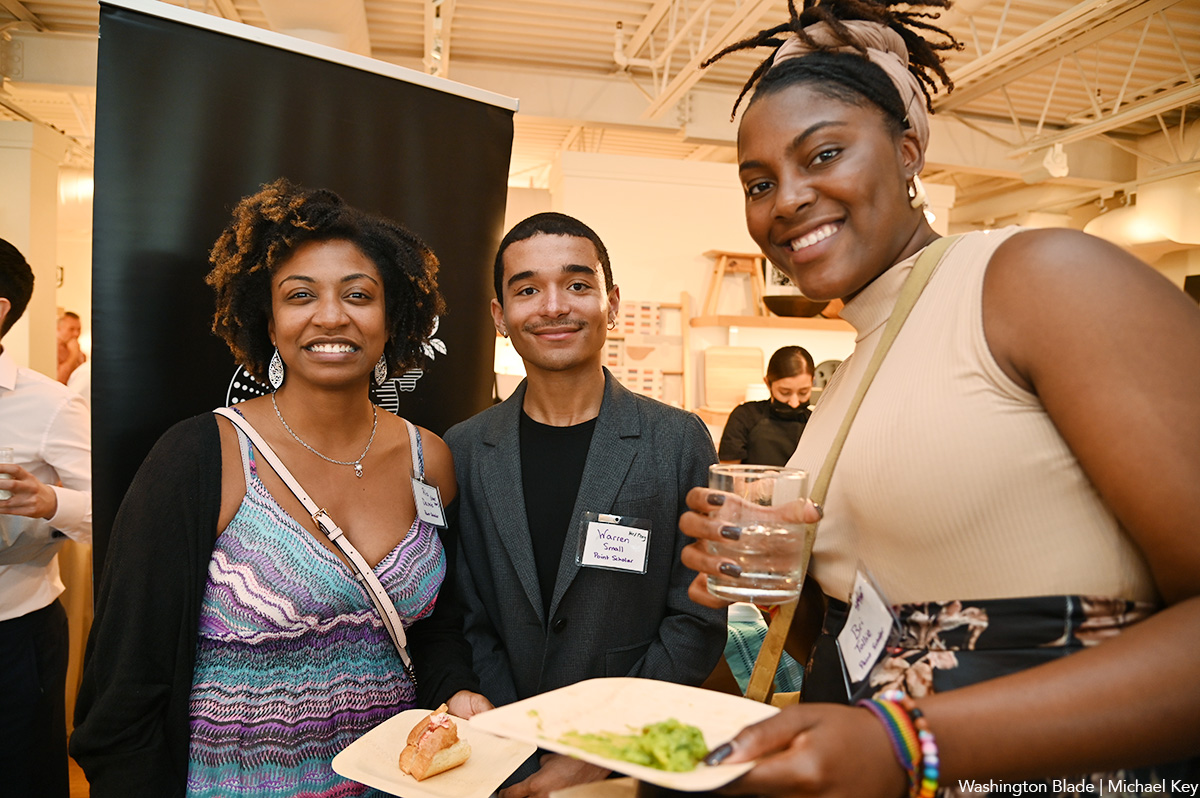
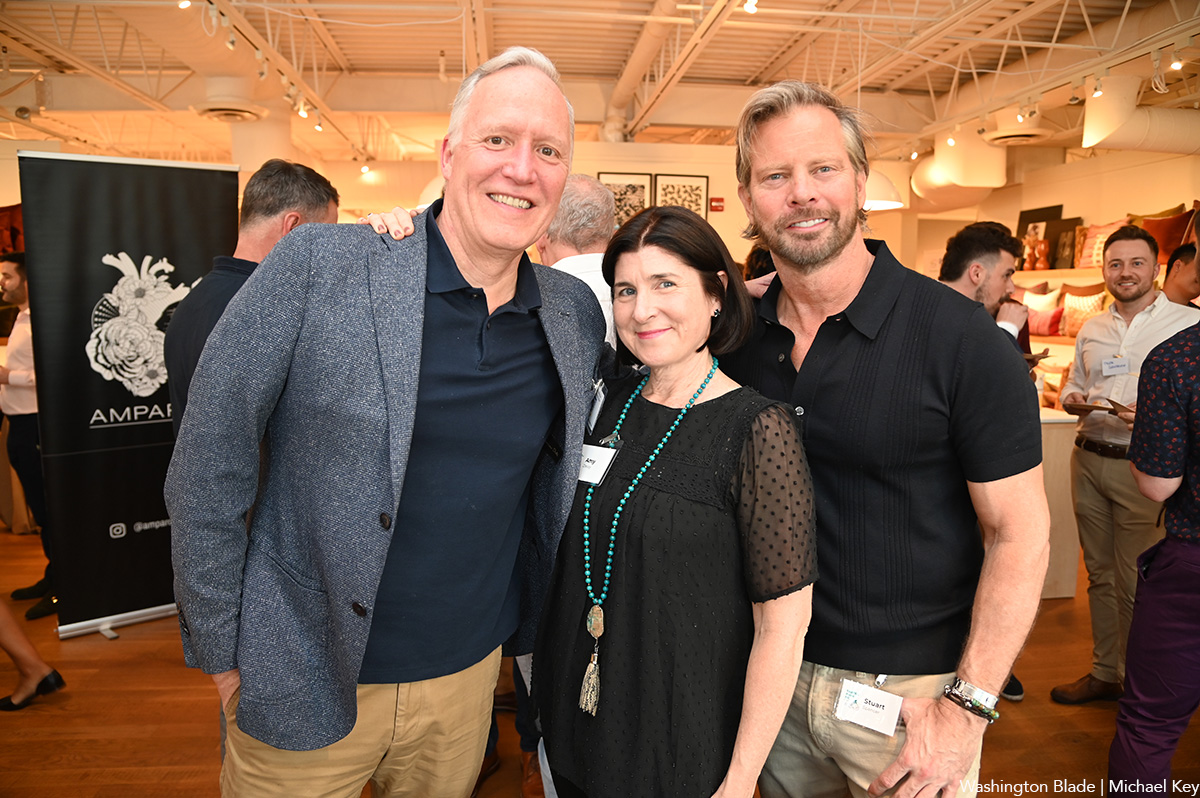
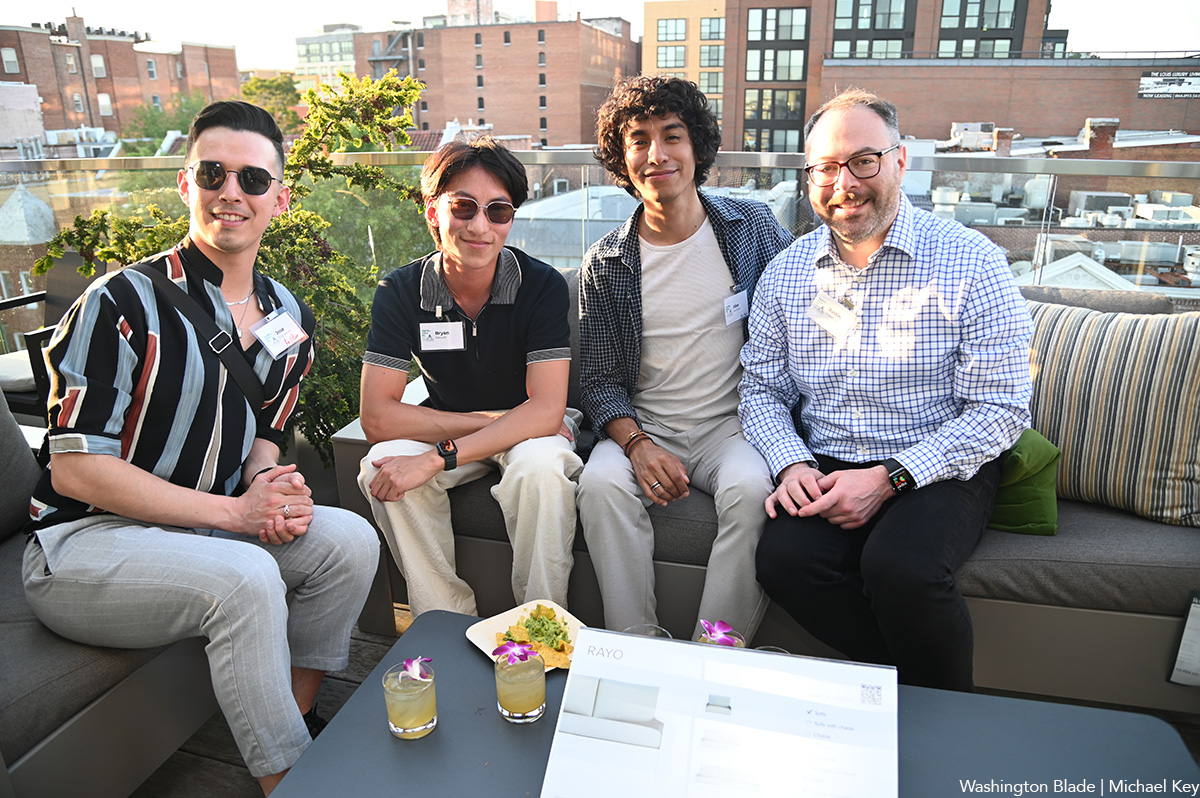
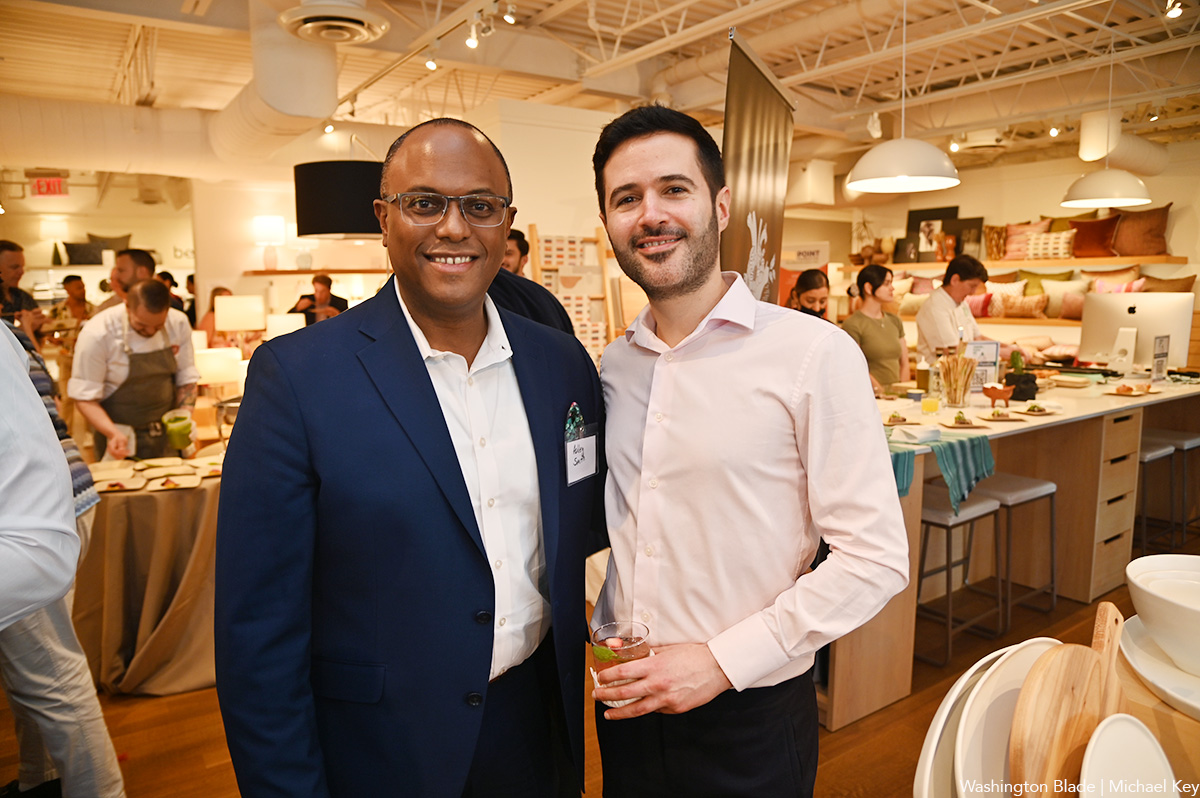

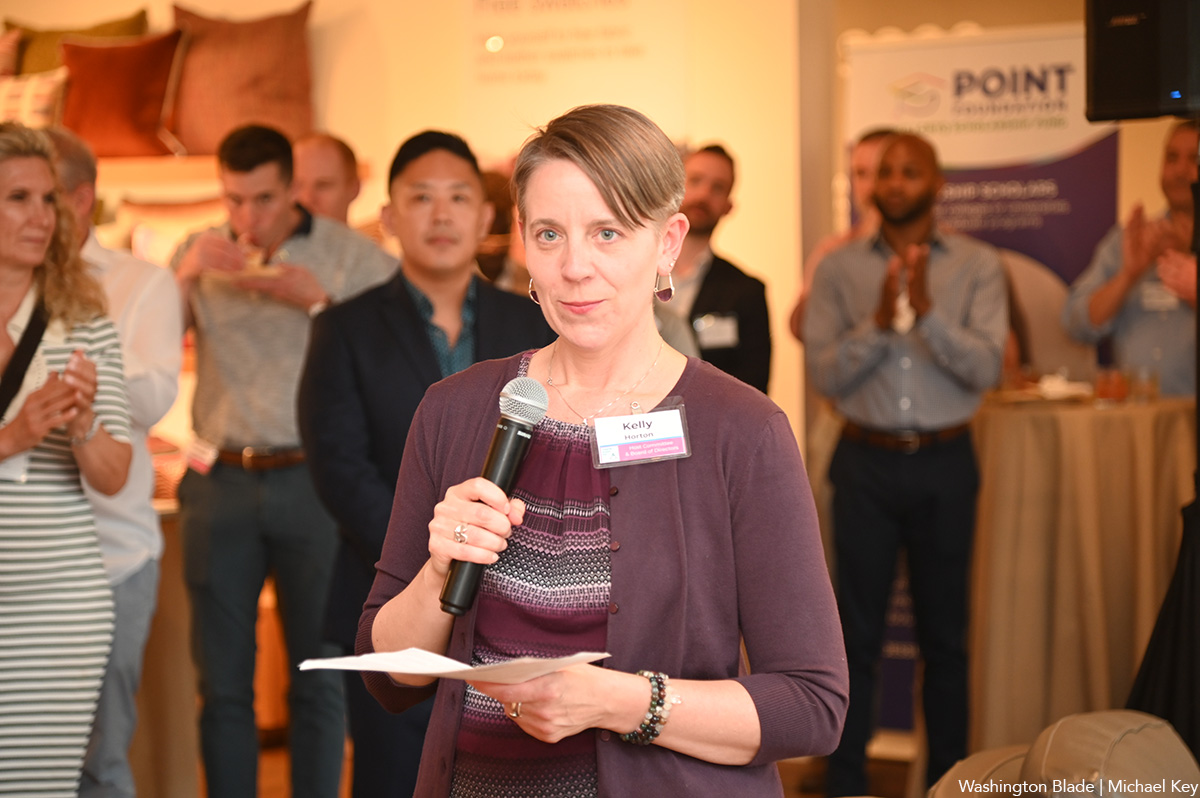


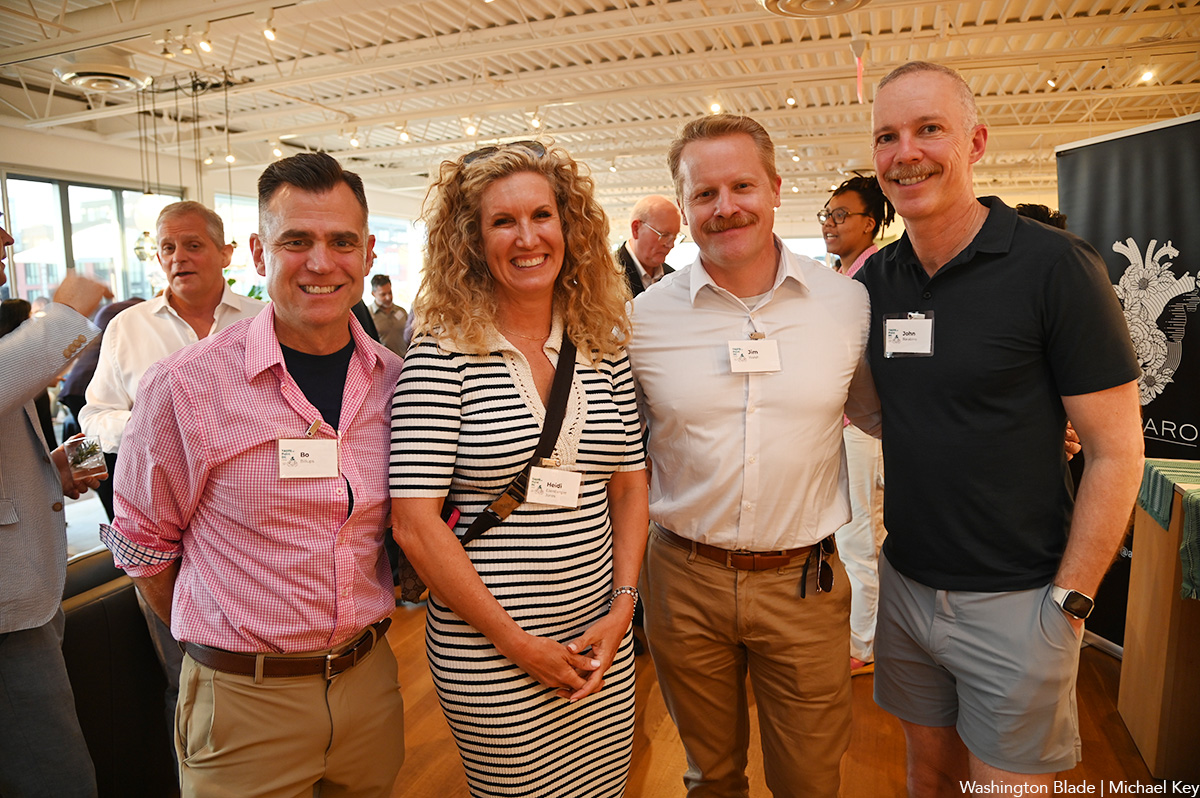
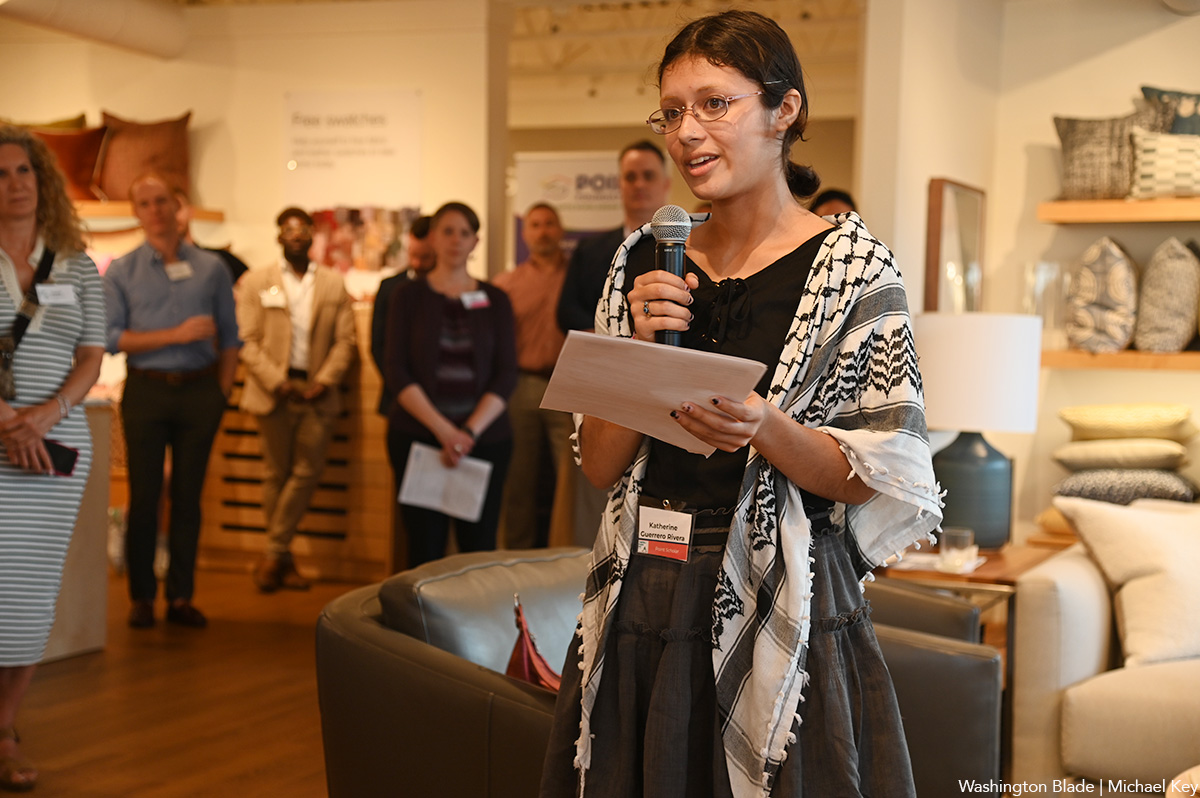
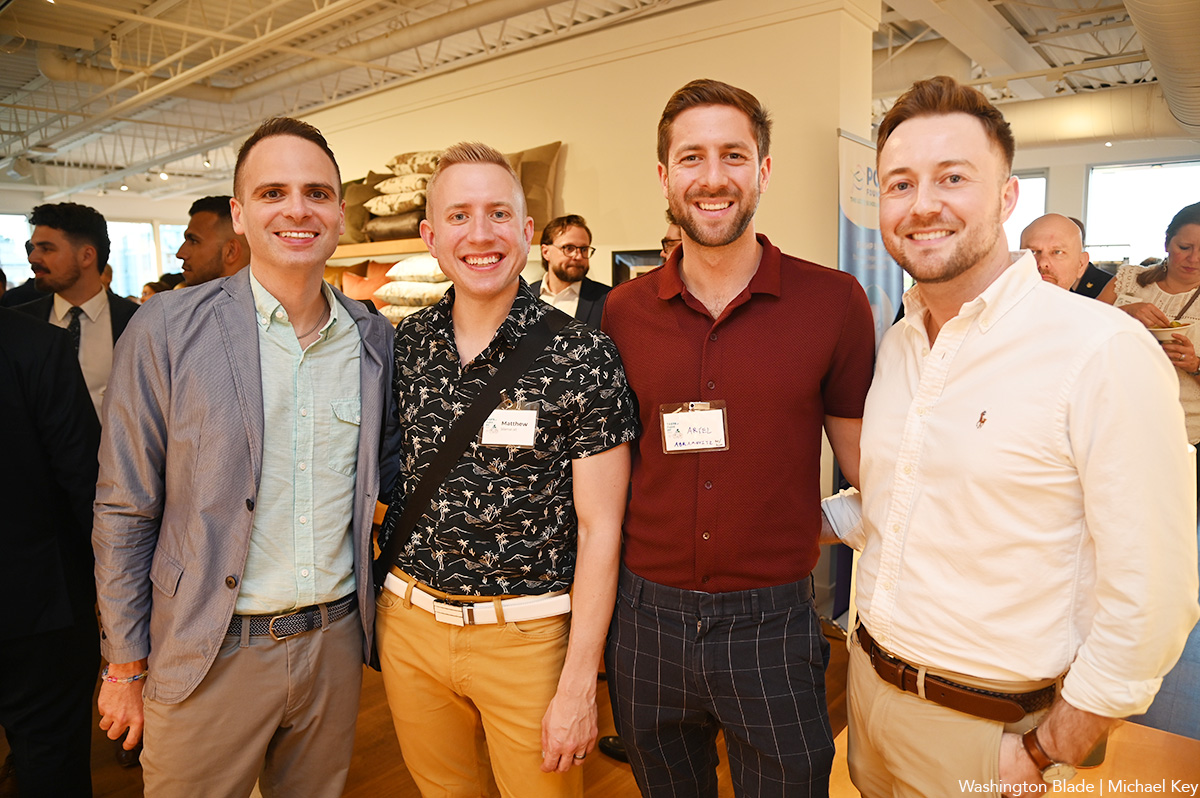
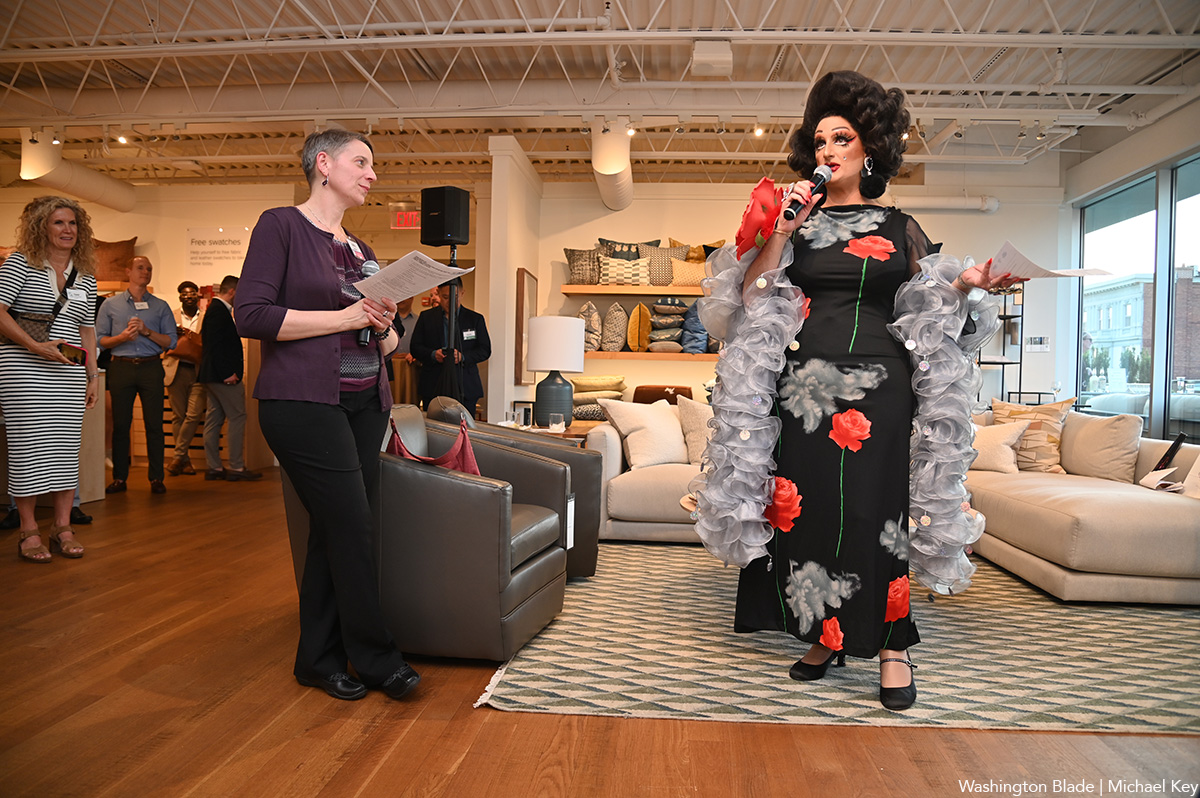
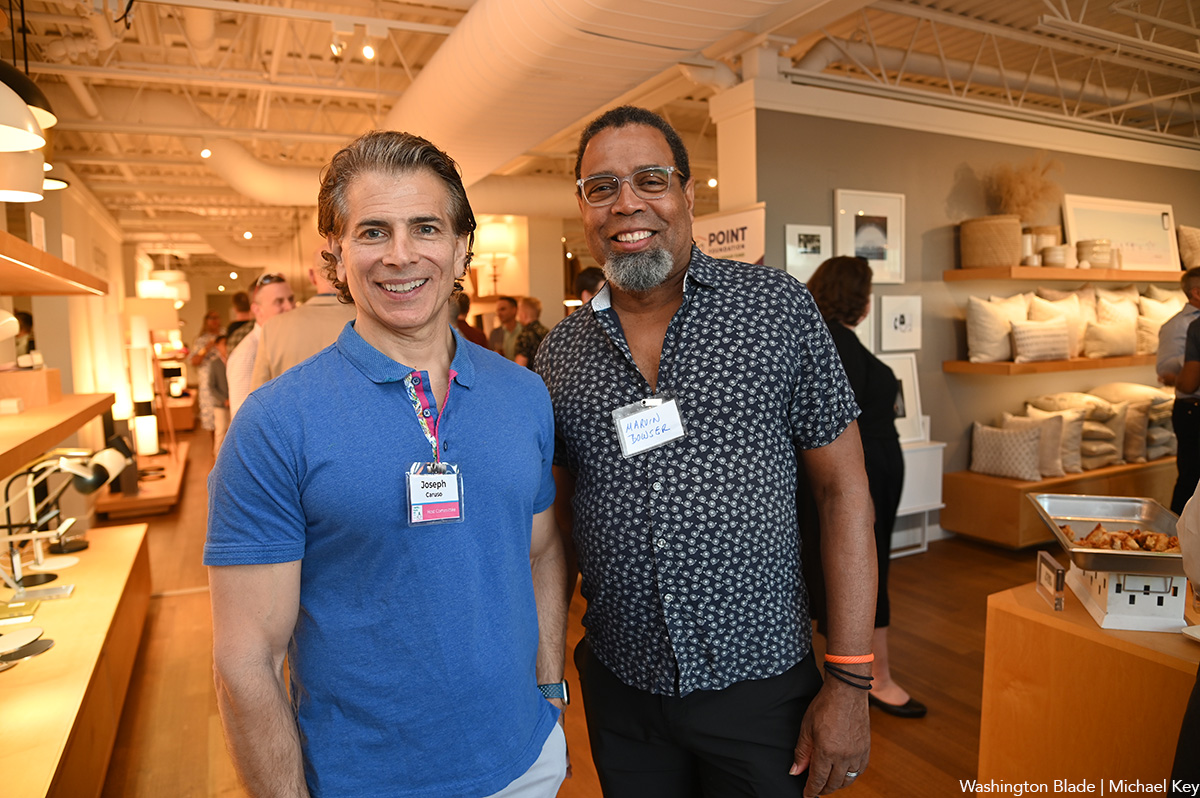
Theater
Miss Kitty tackles classical mythology in ‘Metamorphoses’
Folger production seen through the lens of the African diaspora
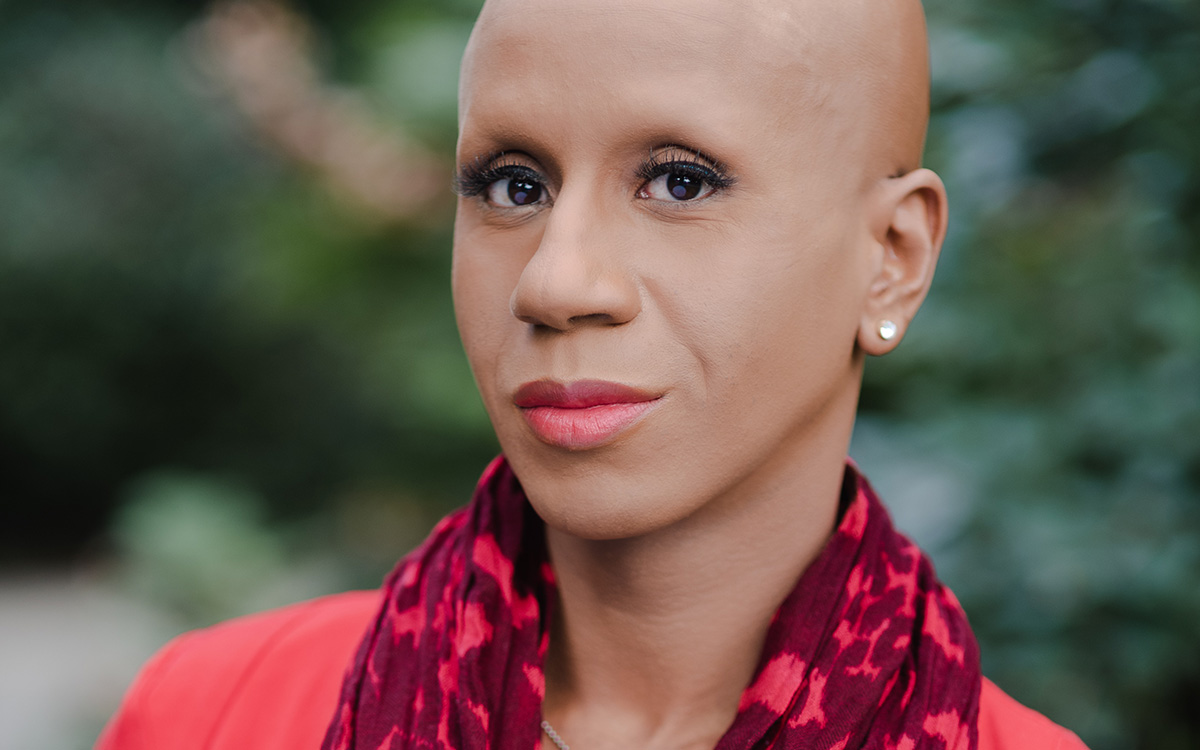
‘Metamorphoses’
May 7-June 16
Folger Theatre
201 East Capitol St., S.E.
$20-$84
Folger.edu
Miss Kitty’s words are thoughtful and measured, occasionally punctuated by flamboyant flourishes and uplifting proclamations. Her tried and tested tagline is “live in fierce not fear.”
She describes herself as “AMAB (assigned male at birth), nonbinary, genderqueer, transfemme” as well as “chanteuse, noble blacktress, and dancer.”
Currently, Miss Kitty is testing her talents in Mary Zimmerman’s “Metamorphoses” at Folger Theatre on Capitol Hill.
At 90 minutes, “Metamorphoses,” is made up of interwoven vignettes from classical mythology including the tales of Midas and his daughter, Alcyone and Ceyx, and Eros and Psyche.
“It’s all stories that relate to the human condition: the follies, the happiness, the love, the loss,” Miss Kitty explains. “And a thorough knowledge of mythology isn’t a requirement for enjoyment.”
The language is contemporary and with its 11-person ensemble cast – comprised exclusively of Black or indigenous people of color – they’re adding their own spin to its present-day feel, she adds.
In Zimmerman’s famously staged premiere production, the actors performed in and around a pool of water. At Folger, director Psalmayene 24 has ditched actual aquatics; instead, he suggests the element by introducing Water Nymph, a new character constructed around Miss Kitty.
Water Nymph doesn’t speak, but she’s very visible from the opening number and throughout the play on stage and popping up in unexpected places around the venue.
“It’s a lot of dancing; I haven’t danced the way Tony Thomas is choreographing me in a very long time. At 40, can she still make theater with just my body as her instrument?
The name “Miss Kitty” was born over a decade ago.
Miss Kitty recalls, “She was still presenting as male and going by her dead name. Someone commented that with the wig she was wearing for a part, she looked like Eartha Kitt whom she deeply admires.”
Her penchant for illeism (referring to oneself in third person) isn’t without good reason. She explains, “It’s to reiterate that however she might look, she’s always there; and if you misgender, she will let you know.”
Initially, the moniker was a drag persona at Capital Pride or the occasional fabulous cabaret performance at a nightclub.
But as time passed, she realized that Miss Kitty was something she couldn’t take off. She had always been a part of her.
“She’s helped me to grow and flourish; she’s given me the strength that I never would have had before. I’m so proud of myself for realizing that before it was too late.”
Bringing Miss Kitty into her theatrical career presented some concerns. Would theater folks be open to the new her, especially those she’d worked with before?
Not always, but she’s found new companies who’ve welcomed Miss Kitty with open arms including Avant Bard, Spooky Action Theater, and now Folger.
Last fall, Miss Kitty appeared in Spooky Action’s Agreste (Drylands), a stunning queer story penned by gay Brazilian playwright Newton Moreno.
After being invited to audition and reading the script, Miss Kitty was determined to be a part of the production.
A work dealing with love and being trans, and transphobia, and how people can turn on a dime once they learn the truth about someone, resonated deeply with the actor.
“The play speaks to the idea that if people just let people be who they are and love who they want to love we’d all be a lot happier,” she says.
For her sublime efforts, Miss Kitty nabbed a Helen Hayes Award nomination in the Outstanding Lead Performer category (winner to be determined on Monday, May 20 during a ceremony at The Anthem).
It’s her first time nominated and first time attending. She’s thrilled.
Miss Kitty grew up in Oxen Hill, Md., and now lives near Washington Harbor. Her entry into performance was through music followed by high school plays. She graduated from Catholic University with a degree in music/concentration in musical theater, and from there dove directly into showbiz.
Looking back, Miss Kitty says, “being a person of color AND queer can be a double whammy of difficulty. You have to live in light and do the things you’re afraid to do. That’s the game changer.”
Presenting “Metamorphoses” through the lens of the African diaspora (the cast also includes Jon Hudson Odom and Billie Krishawn, among others) helps us to realize that every story can be universal, especially for marginalized people — South Asian, Native American, or fully queer perspectives, she says.
“Having an all-Black ensemble opens all new worlds for everyone.”

Las Vegas, known for its vibrant and inclusive atmosphere, embraces LGBTQ culture with open arms, making it a thriving hub for the community. Iconic events like the annual Las Vegas Pride Parade and Festival bring together people from all walks of life to celebrate diversity and unity. The 2024 Las Vegas Pride festival is scheduled for Oct. 12, so start planning now.
The city’s commitment to inclusivity is reflected in the diverse range of LGBTQ-friendly accommodations, ensuring that visitors feel welcome and respected. Beyond the nightlife, Las Vegas hosts a variety of LGBTQ-focused community organizations, support groups, and cultural events that contribute to the rich tapestry of the city’s inclusive ethos. Whether exploring the famous entertainment offerings or participating in community-driven initiatives, LGBTQ individuals and allies alike find a warm and accepting home in the vibrant tapestry of LGBTQ culture in Las Vegas.
Ever since I was young, I have always wanted to stay at Bellagio. Its iconic foundations have fascinated me for decades. The hotel stands as an epitome of luxury and sophistication, offering an unparalleled experience that seamlessly blends opulence, entertainment, and fine dining. From the moment you step into the grand lobby, it’s evident that Bellagio is committed to providing a world-class stay, especially when you glance at the ceiling adorned with Chihuly glass sculptures.
I stayed in a recently renovated room in the Spa Tower with an unobstructed view of the Vegas Strip and the fountains. The attention to detail is evident in the tasteful decor, plush furnishings, and modern amenities. Beginning at 3 p.m. on weekdays and noon on weekends, the choreographed water show set against the backdrop of the Las Vegas Strip is a mesmerizing display of artistry, combining music, light, and water in perfect harmony. It sets the tone for the exquisite experiences that await within Bellagio.
Bellagio is also home to the famous Conservatory and Botanical Gardens, a lush oasis that undergoes seasonal transformations, displaying stunning floral displays and thematic installations. This botanical escape provides a serene contrast to the lively atmosphere of the casino and the bustling Strip. During our stay, the staff were completing the new springtime exhibition, which gave us Alice in Wonderland vibes.
For those seeking entertainment, Bellagio offers the spectacular “O” by Cirque du Soleil, a water-themed extravaganza that complements the hotel’s overall theme. Bellagio Gallery of Fine Art is another cultural gem within the hotel, featuring rotating exhibitions that display masterpieces from around the world.
Although it is possible to never leave the hotel, we wanted to experience other MGM Resorts properties, so we headed to LPM at the Cosmopolitan of Las Vegas for dinner. LPM offers an exquisite dining experience that effortlessly marries Mediterranean charm with the vibrant energy of the Strip. From the moment you step through the entrance, you are greeted by an ambiance that strikes a perfect balance between sophistication and conviviality.
LPM’s interior is a visual feast, adorned with chic decor, warm lighting, and an intimate atmosphere. The combination of contemporary design elements and classic French accents creates a welcoming space that feels both elegant and comfortable. Whether you’re celebrating a special occasion or seeking a romantic dinner, LPM’s ambiance sets the stage for an unforgettable dining experience.
LPM’s menu is a culinary triumph, highlighting the rich and diverse flavors of the French Riviera. The emphasis on fresh, high-quality ingredients is evident in every dish. We began our meal with a variety of appetizers, including the Yellowtail Carpaccio, Escargots, and their signature Burrata prepared with heritage tomatoes and basil and topped with white truffles. For our main courses, we decided to focus on seafood entrees, so we tried the Lobster Risotto and grilled Chilean Bass. Both were prepared to perfection and paired very well together if you are looking to share entrees.
Of course, one of the biggest attractions of Las Vegas is the Strip itself. Spend a few hours meandering through each hotel and taking in the Vegas vibe. There is no other place in the world quite like it.
If you are in the mood for a little adventure, head to Area15, located about 10 minutes from the strip. Area15 is an immersive entertainment complex that blends art, technology, and entertainment in a unique and captivating way. Boasting an otherworldly exterior and a dynamic interior, Area15 is home to a variety of innovative experiences, including interactive art installations and virtual reality adventures. Its anchor tenant, the Meow Wolf’s Omega Mart, is a surreal supermarket-like environment filled with mind-bending art and hidden mysteries. The venue also hosts concerts and live events including Beyond Brunch, a variety show hosted by drag queen extraordinaire Andrew Ryan. The two-hour spectacle includes a wonderful buffet and performances by talented acts ranging from hoop dancers to Cirque-style entertainers. The show is well worth the price of admission; it is not your typical drag brunch.
Spend the afternoon touring Area15 or head to The Sphere, Las Vegas’s newest concert venue. Rock icons U2 opened the venue with a 40-night run, but guests can purchase tickets to Darren Aronofsky’s multi-sensory film “Postcard from Earth.”
For a trip down memory lane, especially if you are in you were born in the ‘70s or ‘80s, check out Retro by Voltaggio at Mandalay Bay. The restaurant owned by Top Chef stars, Bryan and Michael Voltaggio, takes diners on a nostalgic journey through time, blending modern culinary techniques with comforting flavors reminiscent of classic American dishes set in a retro-chic environment. The space is adorned with quirky memorabilia, neon accents, and a colorful palette that captures a sense of nostalgia without feeling overly kitschy, creating a welcoming environment for diners to unwind and enjoy the culinary adventure.
Retro by Voltaggio’s menu is a playful exploration of classic American favorites. We started our dinner with the deviled eggs with smoked trout roe along with the beet steak tartare, which was incredible. Next came the bluefin tuna ceviche served over coconut crushed ice. For our entrees we tried the trout meuniere, which was served in a lemon and caper sauce, as well as the lobster thermidor with lobster waffles — yes, you read that correctly. It was as delicious as it sounds.
Save room for the dessert cart, which contains innovative creations that satisfy the sweet tooth. Whether you’re a fan of nostalgic flavors or simply seeking a unique and enjoyable meal, Retro by Voltaggio is worth the visit.
After dinner, catch a performance of Michael Jackson “ONE” by Cirque du Soleil also at Mandalay Bay. The show is a captivating tribute to the King of Pop that seamlessly blends the magic of Cirque du Soleil with the timeless music and iconic choreography of Michael Jackson. From the moment the lights dim to the final bow, the show is a high-energy, emotionally charged celebration of the legendary entertainer’s life and legacy. This isn’t your typical Cirque du Soleil show and is more like a concert featuring all of Michael’s greatest hits, memorable dance moves, and state-of-the-art production. I felt like “ONE” is the type of concert Michael would have wanted to perform if he were still with us.
The thing I like most about Vegas is it is always evolving. Every time you visit, there is something new to see or do. Viva Las Vegas!
-

 a&e features4 days ago
a&e features4 days agoPride season has begun
-

 Federal Government5 days ago
Federal Government5 days ago4th Circuit rules gender identity is a protected characteristic
-

 The White House2 days ago
The White House2 days agoJudy Shepard to receive Presidential Medal of Freedom
-
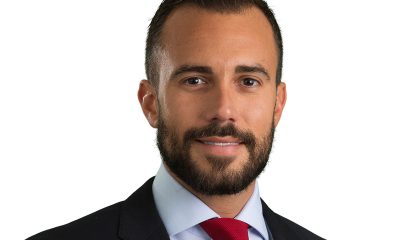
 World4 days ago
World4 days agoNew World Bank US executive director: LGBTQ rights are human rights





